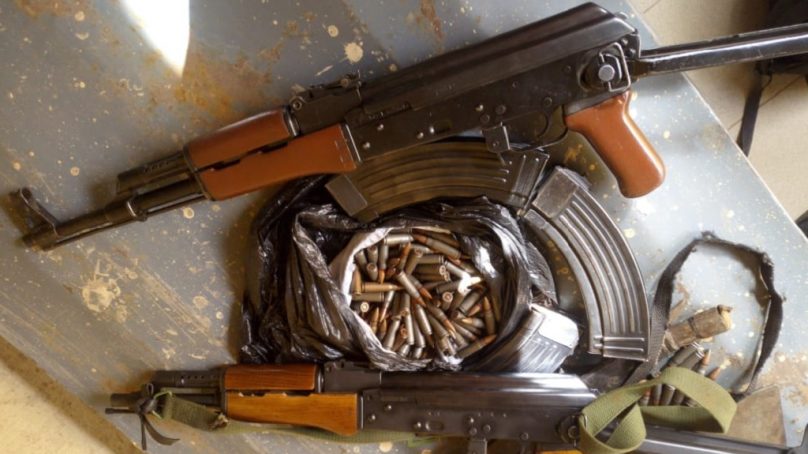
Implementing the many global tools aimed at controlling trade and transfer of weapons – ranging from tracing instruments to export rules, safe storage guidelines and beyond – is crucial to prevent arms from falling into the wrong hands, the United Nations (UN) senior disarmament official told the Security Council.
“Emanating from any arms transfer is the inherent risk of diversion to unauthorised end users,” Izumi Nakamitsu, UN High Representative for Disarmament Affairs, said.
Addressing the Council during the first open meeting of Russia’s month-long presidency – and during which many delegates referenced the ongoing conflict in Ukraine – she stressed measures to counter weapons diversion contribute significantly to global peace and security especially conflict prevention.
The illicit and unregulated trade and diversion of weapons and ammunition has long been a major concern for the international community. Illicit and unregulated arms transfers can instigate, fuel and prolong armed conflict, armed violence, terrorism and crime.
They can also destabilise entire regions, contribute to and enable human rights abuses as well as lead to violations of arms embargoes she said.
To respond to these risks, states established a number of international, regional and bilateral arms control treaties, agreements and frameworks to prevent and eradicate illicit trade and diversion of conventional arms, regulate international arms trade and to promote transparency in weapons transfers.
At the international level, this includes the Arms Trade Treaty (AAT) which marked its 10th anniversary on 2 April.
Also crucial are the UN programme of action on small arms and light weapons, the International Tracing Instrument and the protocol against illicit manufacturing of and trafficking in firearms, parts, components and ammunition better known as the Firearms Protocol).
Urging member-states to comply with obligations under the agreements to which they are parties, Nakamitsu called for robust frameworks to effectively control export, brokering, import, transit, storage and retransfer of weapons and ammunition.
Transfers of arms and ammunition should also include pre-transfer risk assessments and post-shipment controls, including on-site inspection and end-user verification.
Preventing diversion of weapons into the wrong hands requires strong co-operation and information exchange between importing, transit and exporting States, as well as critical tracing systems she told the Security Council.
Nakamitsu emphasised transparency in armament shipments can also serve as a confidence building measure between States, reducing tensions, ambiguities and misperceptions.
In this regard, she highlighted the UN Register of Conventional created in 1992 calling on member states to participate in it by reporting on exports and imports of all equipment in the register’s seven categories of arms and light weapons.
- A Tell report











